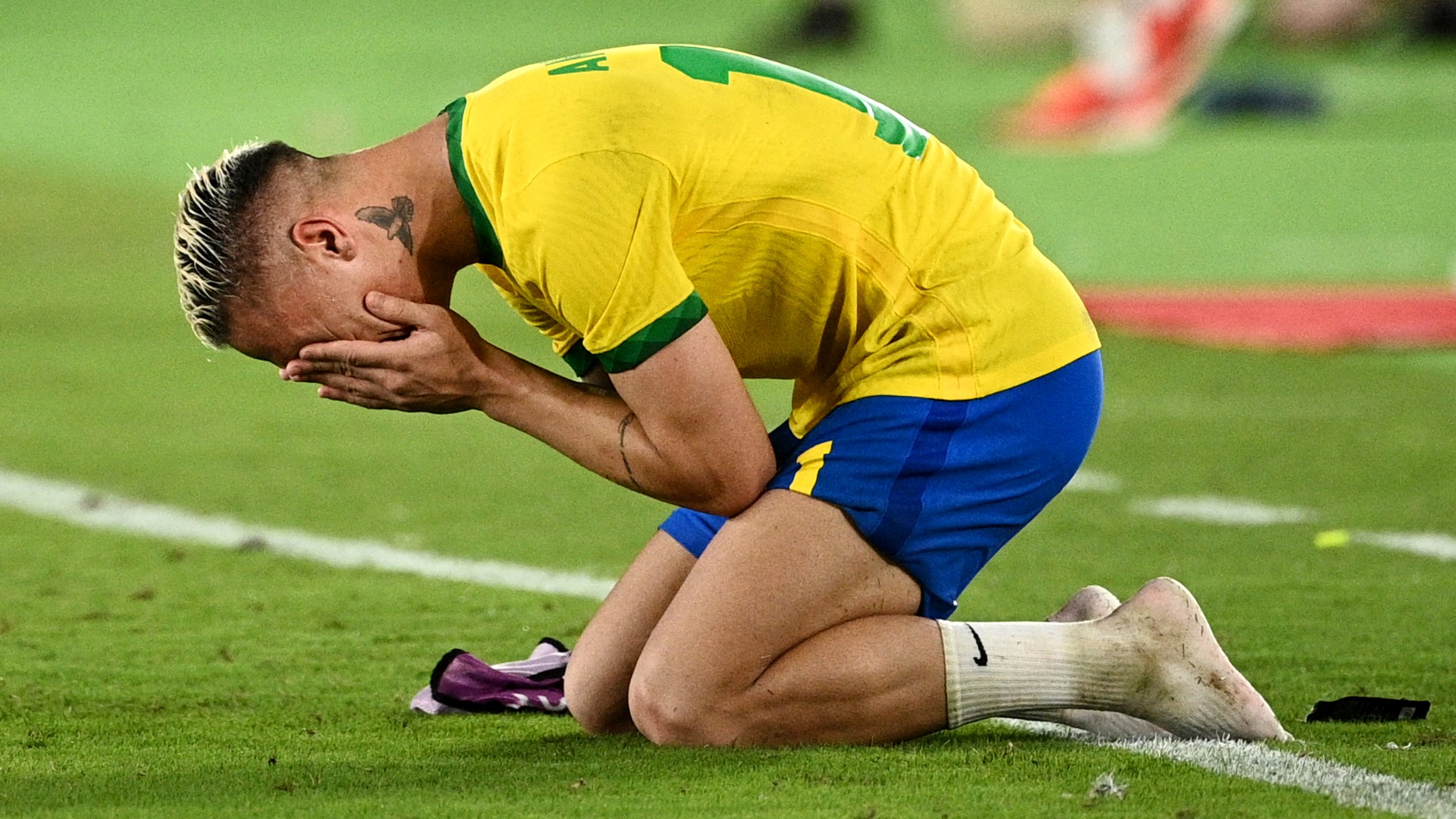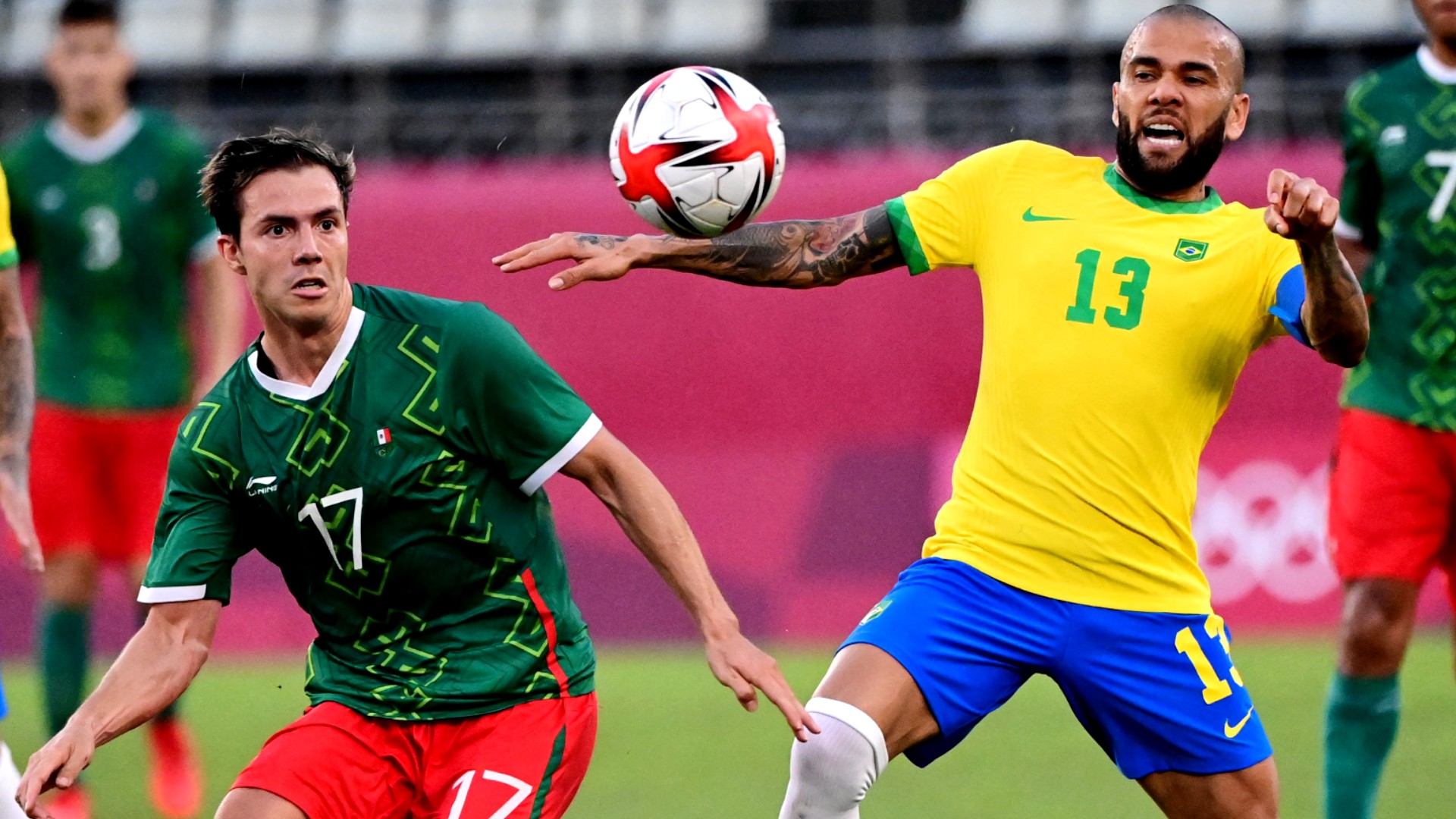Who were the best soccer players at the Olympics? Brazil takes gold, plus other key takeaways
The team with the best players who played the best soccer won the gold medal at the 2021 Tokyo Olympics. It doesn’t always work out that way in international soccer, but Brazil’s 2-1 triumph over Spain in the gold-medal match was just reward for a country that still cares so much about winning the Olympic Games. It was Brazil’s record eighth men’s soccer medal, and second-straight gold medal after winning it for the first time in Rio in 2016.
Brazil’s front three, led by tournament leading scorer Richarlison, were difference makers throughout the competition and Spain was merely the latest victim. Matheus Cunha pounced on a ball in between three Spain defenders to finish expertly just before the half. Then deep in extra time it was Malcom who brushed off Real Madrid defender Jesus Vallejo to finish a clinical counterattack and world-class service from right winger Antony.
The Brazilians took their lead from elder statesman, captain and still world-class right back, 38-year-old Dani Alves, who set the tone with another standout effort. His sprint into the Spain box to salvage a ball heading out of bounds created the first Brazil goal. He badly wanted to win gold and it showed on the play: It was the one honor that he was missing in his trophy case.
The cream ultimately rose to the top in this 2021 tournament and the final four (including bronze-medal winner Mexico and fourth-place finishers Japan) were definitely a class above the rest of the 16-team field and the results bore that out. Brazil’s victory and the high-profile final involving two favorites and powerhouse soccer nations leaves an otherwise mediocre 2021 tournament with a bit of shine.
https://images.daznservices.com/di/library/sporting_news/bd/a3/antony-brazil-2021-olympics_2s5921ibt3ej1x3zua3zlcaw6.jpg”>
Same old story for Spain
They were the pre-tournament favorites with six players on the roster from the Euro 2021 team which made the semis. When it comes down to the volume of soccer created, Spain was by far the best team and its complement of skilled players continues to be impressive. But whether it’s the senior side at the Euros or the Olympic team in Tokyo, Spanish men’s teams continue to lack a cutting edge on both sides of the ball. They’re generally very good working together, but they’re just not great when it comes to one of the players consistently stepping up and making the big play.
On the two instances that decided the game, the Spanish defenders came up small. On the first goal, three players failed to clear a ball that they allowed to bounce in the box, and then Cunha did the rest. And the way Vallejo was muscled off the ball on the second goal will not inspire much confidence in Real Madrid fans as they head into a season without Raphael Varane and Sergio Ramos.
https://images.daznservices.com/di/library/sporting_news/ef/9c/bryan-gil-spain-2021-olympics_y30tue5ouxmr1lf3mdpw2qio2.jpg”>
The only consistent performer in attack was Mikel Oyarzabal. Winger Dani Olmo shows flashes, Marco Asensio is the usual hot and cold player he is (he was very cold against Brazil). We’re left wondering how it would’ve looked if Atletico Madrid target Rafa Mir was given more of a run than the one start against Japan.
Ths Spanish may have been unlucky on a Brazilian goal-line clearance (16th minute) and on a shot by Bryan Gil (above) that struck the crossbar with two minutes left in regulation, but they were on balance second-best in the game.
Top players in Olympic men’s soccer
The talent level wasn’t the greatest at these Olympics, but amidst the mediocrity the standouts were the difference-makers who helped carry their teams to the medal rounds. Here are the top five:
5. Alexis Vega (Mexico): When the ball was on his foot, he made things happen like few in the competition. Porto is already said to be interested in the winger. He’s playing some of the best soccer of his career.
4. Dani Alves (Brazil): Maybe it was because the tournament quality was average, but the class of the 38-year-old right back shined through in every game. He won the one title that was missing from his trophy case.
3. Sebastian Cordova (Mexico): Two-footed skills, vision, dribbling and set-piece mastery should make the playmaker a top Euro transfer target. What was most impressive about his tournament was the personality he showed pulling the strings.
https://images.daznservices.com/di/library/sporting_news/2d/21/sebastian-cordova-dani-alves-mexico-brazil-2021-olympics_8gke7j6eifcx1pseovbt08kqe.jpg”>
2. Takefusa Kubo (Japan): His talent, quickness and tireless running made him tough to contain. There’s already talk that plenty of teams across Europe are interested in acquiring him, but will Real Madrid be open to a transfer? Or might they actually give him his big break?
1. Richarlison (Brazil): And it’s not because he was the top scorer. He hustled, chased and worked like few. It almost felt like he wanted it more than any other player. Desire and talent are the ingredients for stardom. Let’s see if he can take the next step.
Main tournament takeaways
Next wave of Brazilian attackers: The Brazilian pipeline just continues to pump out talents. Matheus Cunha (Hertha Berlin), Malcolm (Zenit), Reinier (Borussia Dortmund) and especially Antony (Ajax) are not far away from breaking through with the senior Brazil side if they can follow up their strong Olympic play with their Euro club teams. Meanwhile, Richarlison is a Brazil fixture and one of the Premier League’s top players, but he has what it takes to have a season that ultimately lands him a transfer to a Champions League contender.
https://images.daznservices.com/di/library/sporting_news/21/e3/reinier-brazil-2021-olympics_1d8h4ms5uis8i1pjvflkbk7cah.jpg”>
Who wants it more?: Clearly, the teams that take the Olympic tournament seriously and convince top players (or their clubs) to participate are typically the ones that have the best performance. It helps explain the success of the final four teams and the failure of nations like Germany, France and Argentina.
Young player showcase: The Olympics have a place in men’s international soccer as an Under-23 tournament (Under-24 in 2021 given the one-year postponement). If nothing else, the Olympic tournament gives a platform for up-and-coming young stars to make their case for a transfer or more playing time with their club team. This matters for nations like Mexico and Japan: They know that only by having more young players developing their game in Europe will they be able to overcome the elite, traditional powers at the senior men’s World Cup. A few of their players should get some serious attention in the final three weeks of the transfer window.
Source: Read Full Article




